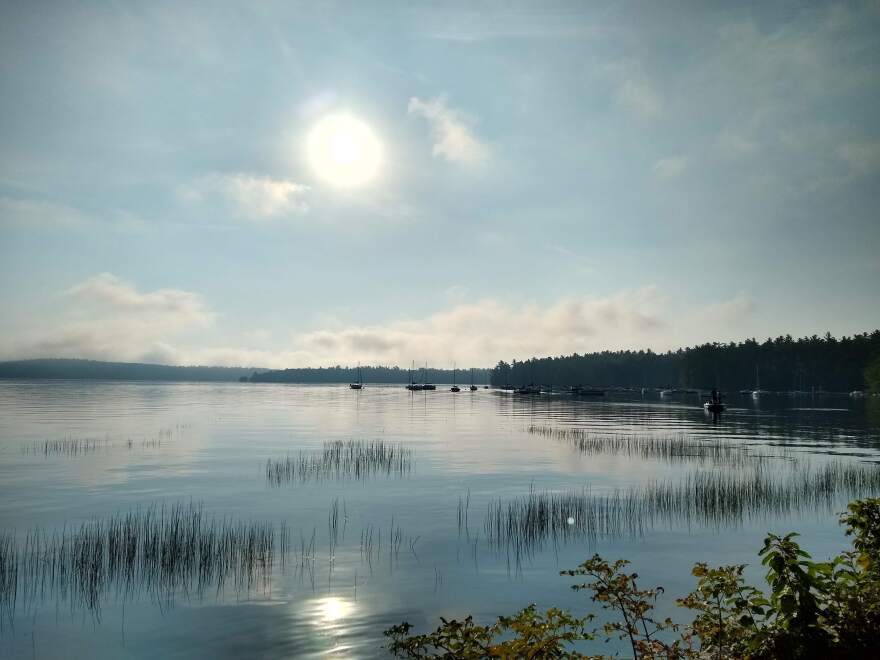A salt story: New research shows how salt can damage New Hampshire lakes

Genevieve Andress / NHPR
Lakes across the world are getting saltier. New Hampshire is no exception. In New Hampshire, road de-icing salt is the main culprit – that’s the salt we sprinkle on highways in the winter. And climate change is exacerbating salinization – more rain and snow in the winter, along with an increase in freeze and thaw cycles, means more salt.
A new international study, published Monday in the Proceedings of the National Academy of Sciences (PNAS), shows salt pollution can damage freshwater lakes even at concentrations that are within the levels that government regulators consider safe.
Jennifer Brentrup is a postdoctoral research associate at Dartmouth, who led part of the international project to study the impacts of salt on freshwater lakes. She says salt can hurt zooplankton – small crustaceans that serve an important role in a lake’s ecosystem, eating algae and serving as a primary food source for fish.
“Sometimes people describe them as sort of the cows of an aquatic ecosystem,“ she said. “[Zooplankton] really tie the food web of lakes together.”
Brentrup says the study shows significant declines in zooplankton at salt levels that are still within the limits that governments in the U.S. and Canada deem safe. Some researchers on the project saw responses to salt at half of the concentration deemed safe.
In Dartmouth’s study, which used water from Mascoma Lake, Storrs Pond, Goose Pond, and Boston Lot Lake, researchers started seeing the impacts of salt on zooplankton at about 120 milligrams of chloride per liter. The current threshold to protect freshwater organisms is set at 230 milligrams per liter in the United States.
Saltier lakes and damaged ecosystems could impact not only New Hampshire’s lakes but also the state’s economy, said Kathy Cottingham, a Dartmouth professor who helped work on the study.
“If we disrupt our food webs, we may see greener lakes and different kinds of fish, which may impact our tourism and our recreation,” she said. “And we all know that New Hampshire, at least in the Lakes region, we rely pretty heavily on that part of our economy.”
Researchers involved with the study say it shows current government regulations don’t adequately protect lake ecosystems, and that there’s an urgent need for governments to reassess water quality guidelines.
